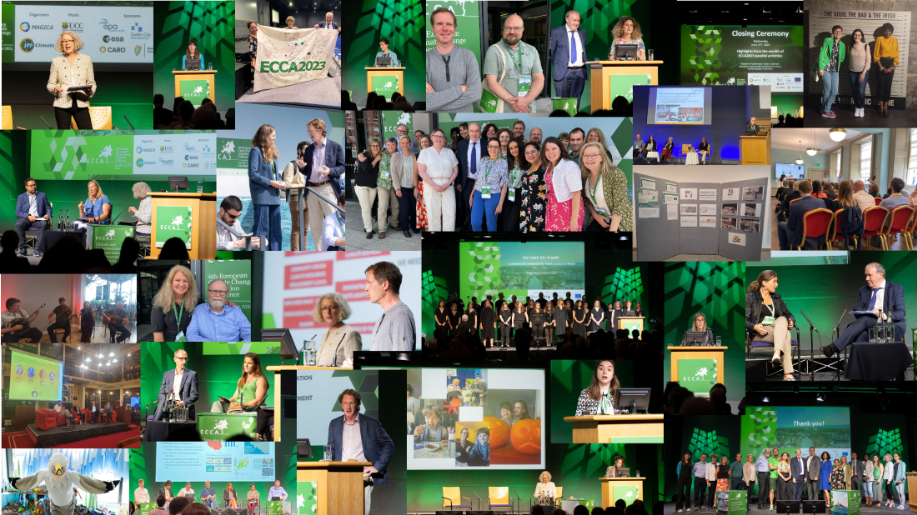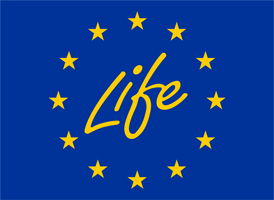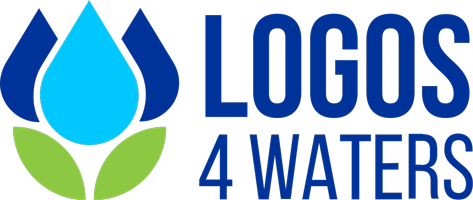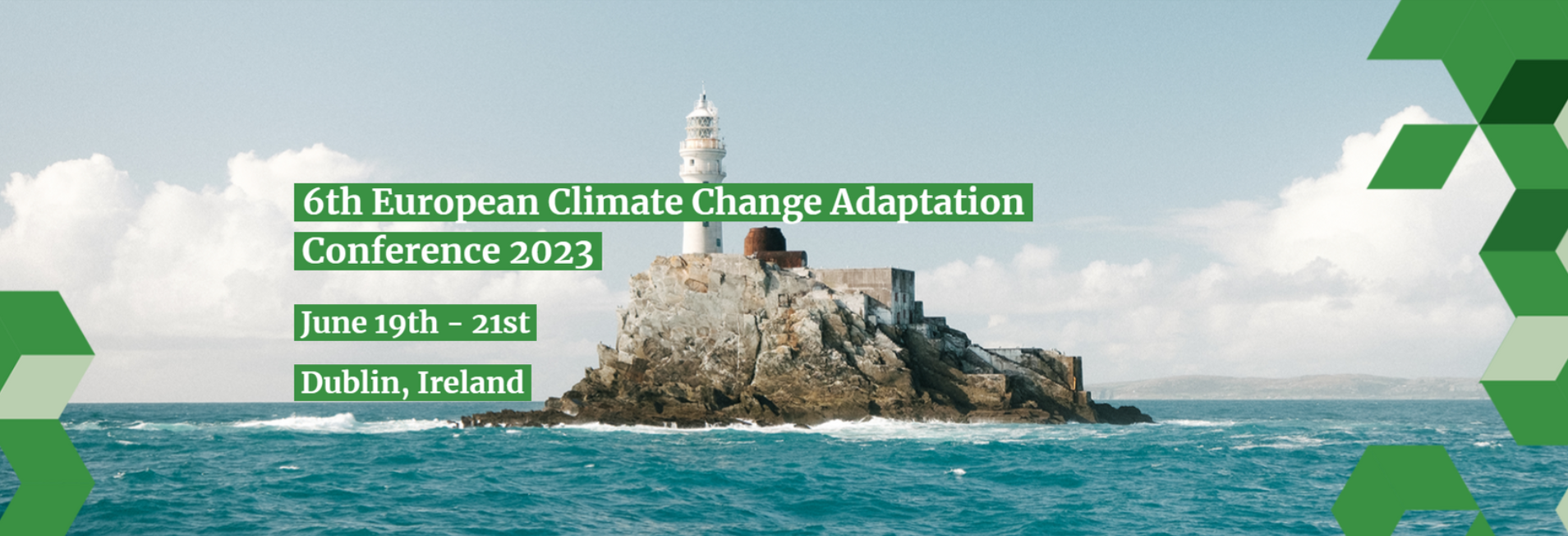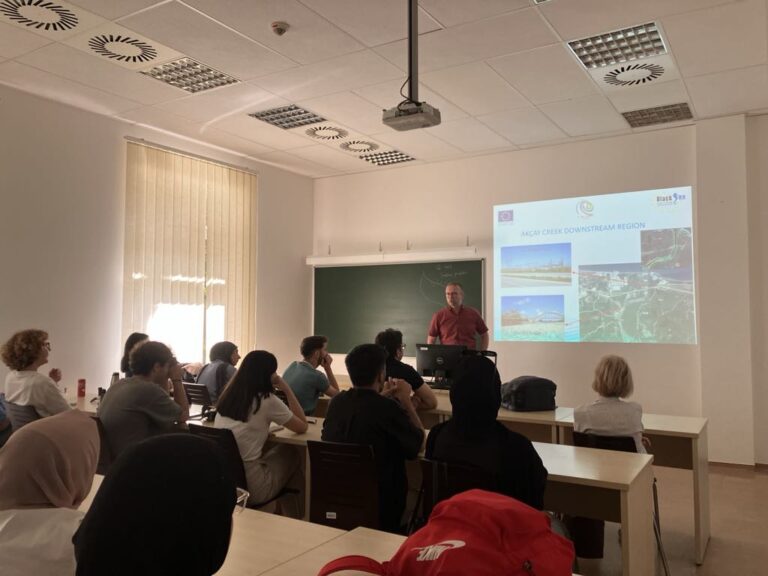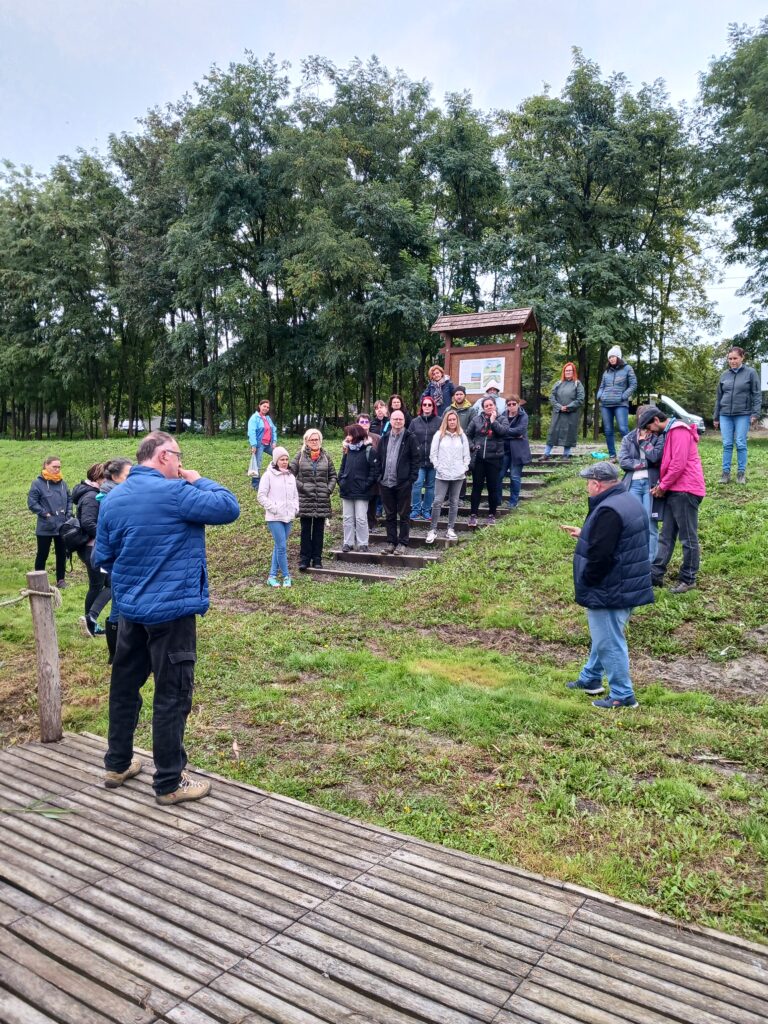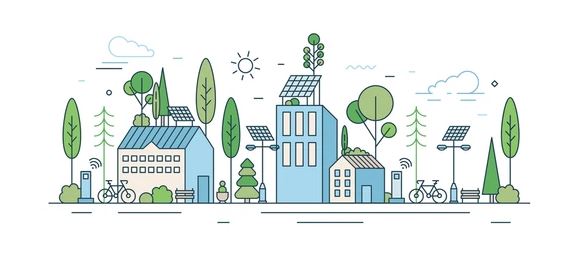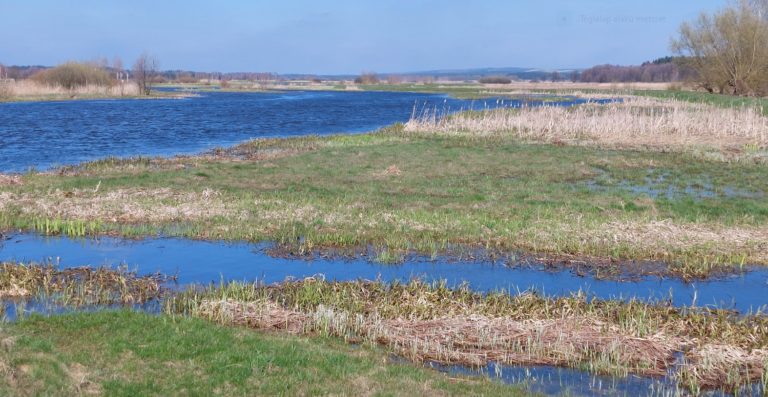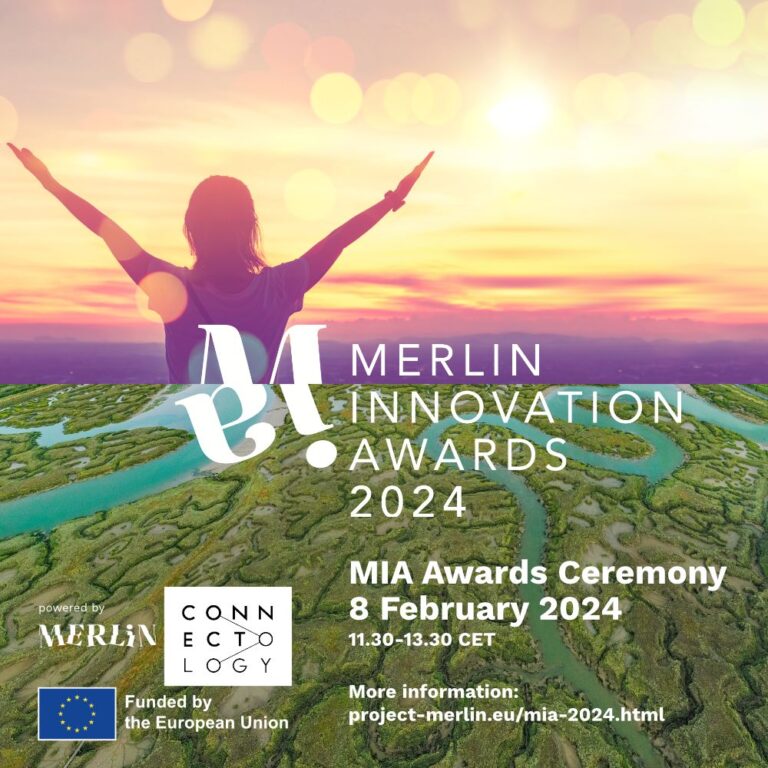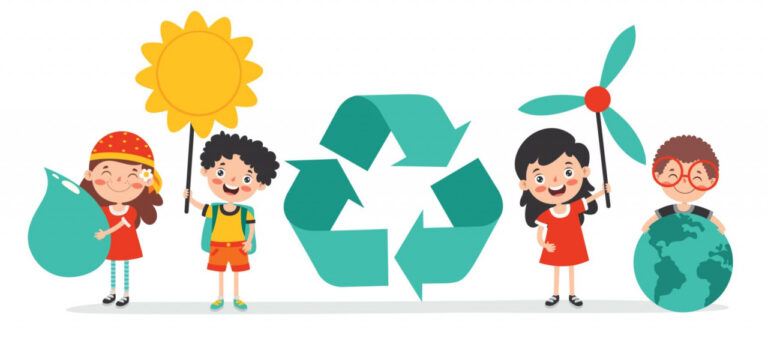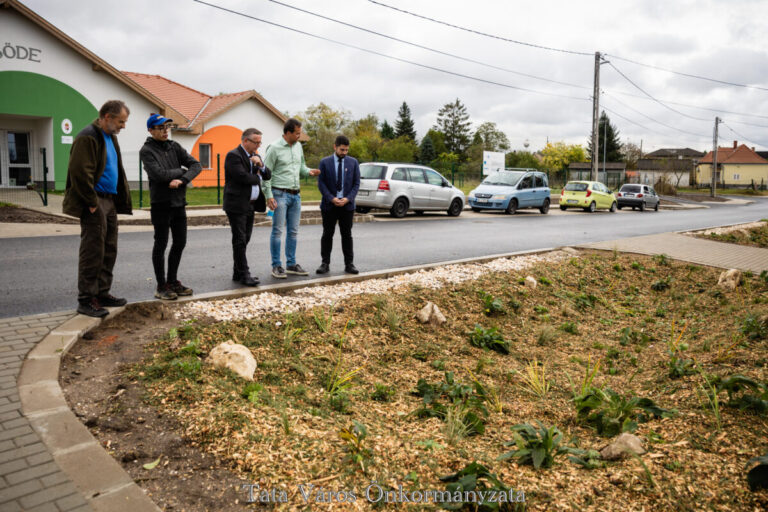As part of the E6 action of the LIFE LOGOS 4 WATERS project, the coordinating beneficiary undertook to participate in three international conferences, in order to disseminate the project and build international relations. Within the framework of this action, two employees of the State Secretariat For Municipal Affairs of the Ministry of Interior of Hungary – Petra Szatzker dr., professional manager and Bettina Lilla Hugyecz, regional coordinator – participated as poster exhibitors at the European Climate Change Adaptation Conference 2023 (ECCA 2023) in Dublin between 19 and 21 June 2023. More than 450 in-person delegates and more than 1,000 people attended to the conference.
The aim of the conference was to advance communication and knowledge exchange between researchers, decision-makers and practitioners by creating platforms to facilate dialogue to strengthen climate change adaptation activities. At the event, six thematic topics were separated in order to define the sections more demarcated. These included the following, which closely related to our project; the nature-based solutions, preparing for more frequent and severe climate extremes; reframing societal transformation; opportunities for climate action and decision support, as well as the climate and social resilience of future energy infrastructure and systems.
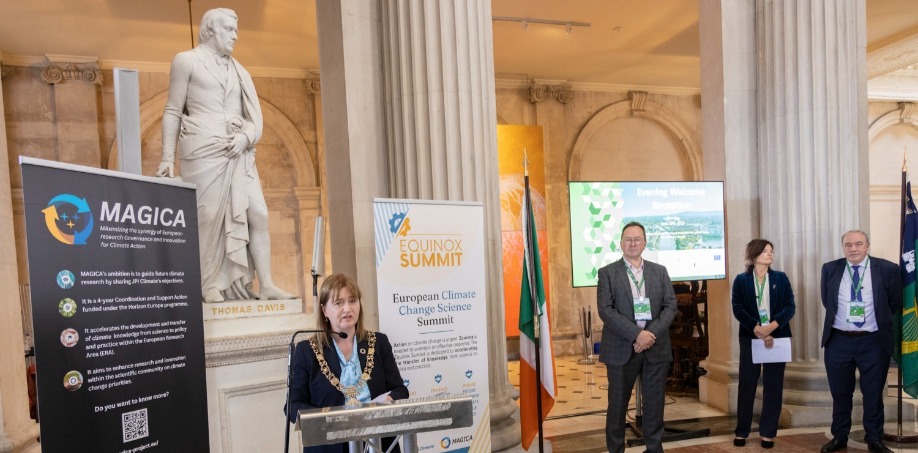
On the first day of the conference, the State of the Climate Report 2022 published by the World Meteorological Organization (WMO) and the Copernicus Climate Change Service (C3S) was presented, which summarizes the current state of the climate and the 2022 European extreme and large impactful weather and climate events in the context of long-term climate variability and climate change. The event took place between 2:00 p.m. and 4:00 p.m. at Dublin City Hall. The delegated colleagues could not attended in person because they were still traveling to the location of the event, but Dalma Varga represented the LIFE team at the event online. Petteri Taalas, Secretary General of the World Meteorological Organization, highlighted in his speech that last year broke temperature records in 10 European countries, mostly in the central and western regions. The report also states that 2022 was record melting of glaciers in the Pyrenees and the Alps, low snow falls, sea level rise has doubled in the past years and record high temperatures were recorded in the North Atlantic Ocean. The report also presents the social impacts of climate data. Based on information in the Emergency Events Database (EM-DAT), meteorological, hydrological and climate-related hazards in Europe in 2022 resulted in 16,365 reported fatalities and directly affected 156,000 people. About 67% of the events were floods and storms related, accounting for most of the total economic damages of about US$2bn. Heatwaves reportedly led to more than 16,000 excess deaths.
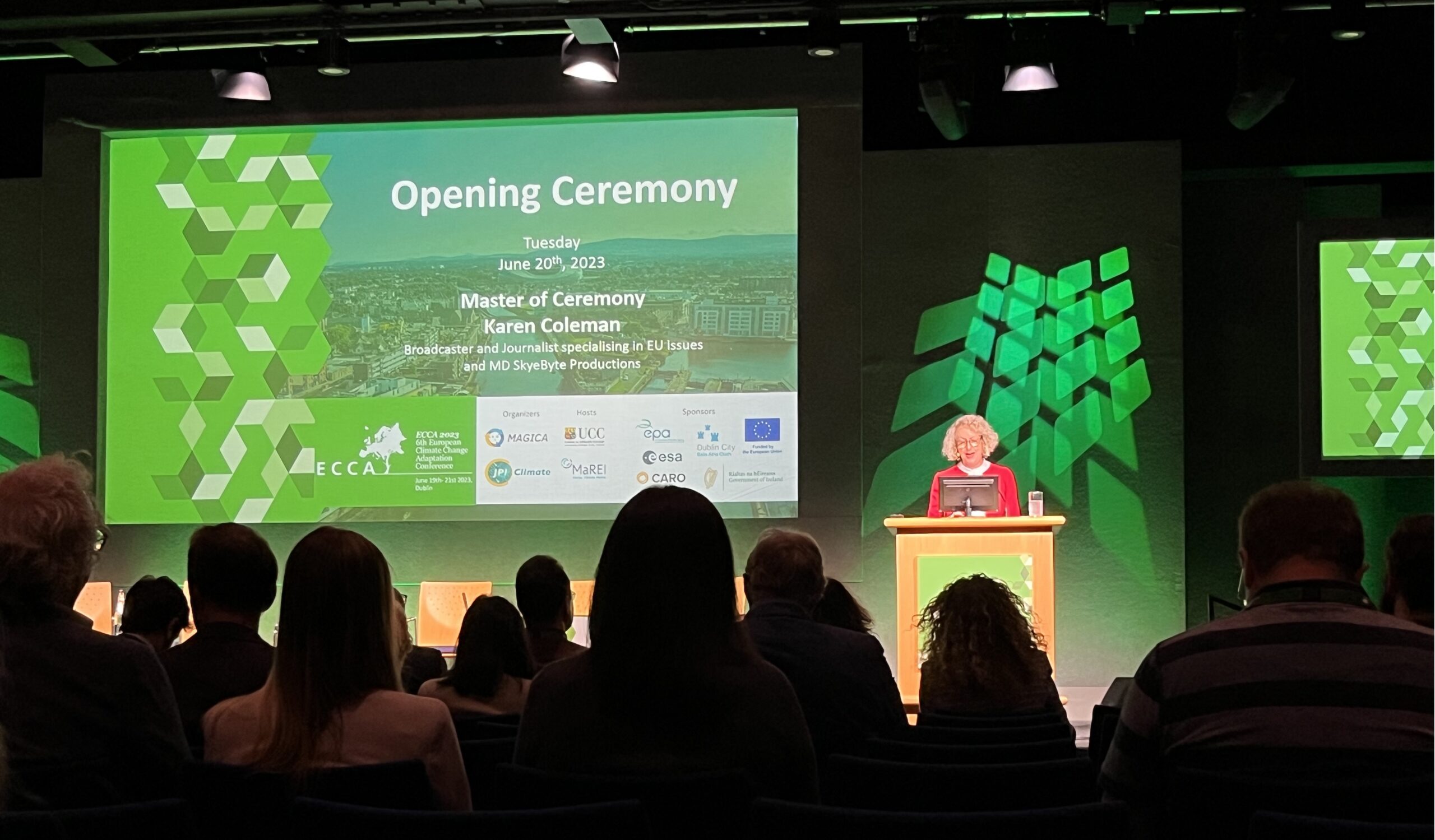
The official opening took place on the second day of the conference, Tuesday, from 9 a.m. in the Printworks Conference Center, where Eimear Cotter – an employee of the Irish Environmental Protection Agency (EPA) – greeted the conference participants first, followed by an opening speech by John Bell, an employee of the European Commission’s Directorate-General for Research and Innovation.

In his speech, he emphasized that the research results must be translated into practical implementation, and that the reasons leading to the warming of our planet must be explained to the researchers in such a way that the decision-makers and the population can understand it.
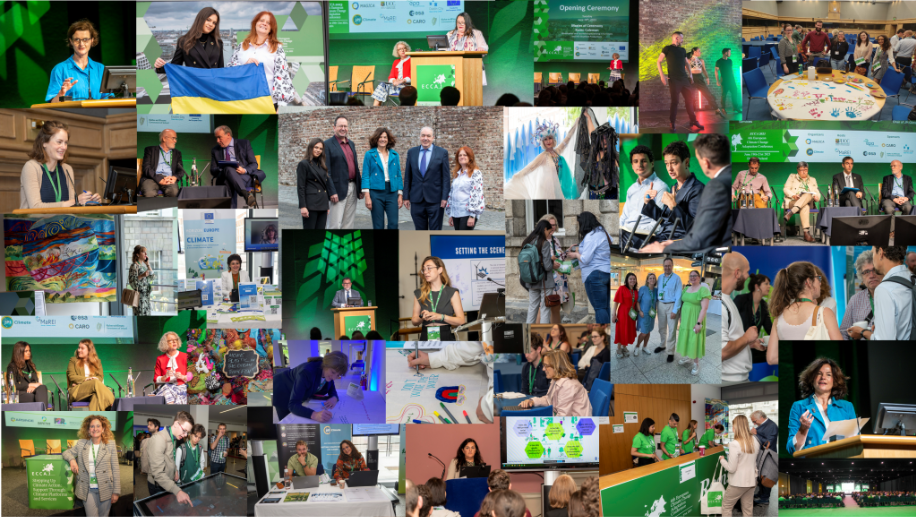
After the opening ceremony, the participants could choose from different professional programs at three locations (Printworks, Bedford Hall, Hibernia Conference Hall). On the one hand, they could participate in the professional meetings of the sections, but in addition, the organizers prepared many other programs e.g. additional professional presentations as part of Piazza Activities; poster exhibition; booths of professional organizations; and video-based art presentations, installations, and performances.
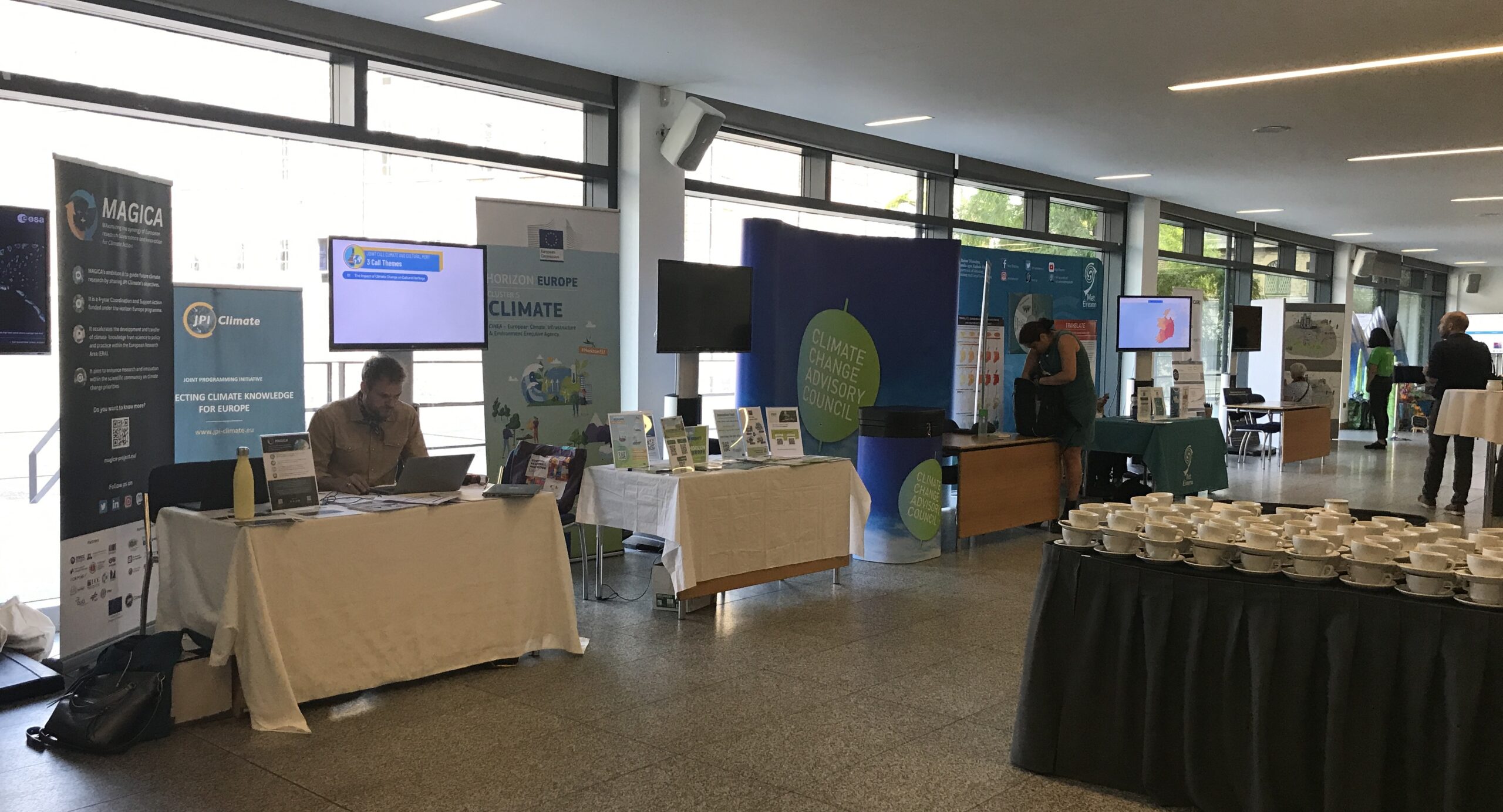
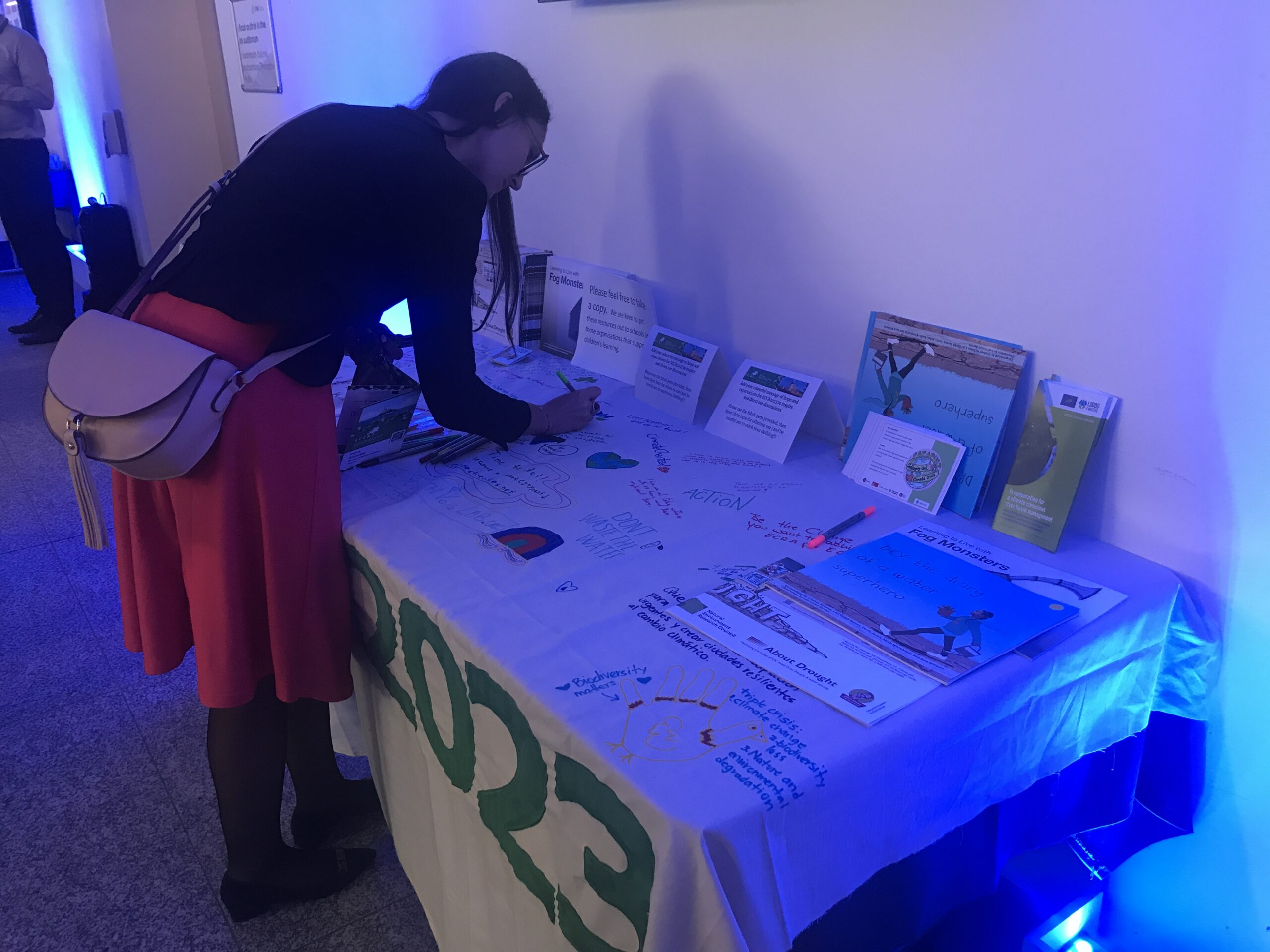
The delegates of the Ministry of the Interior of Hungary presented the Püspökszilágy’s pilot area of the implemented LIFE-MICACC and the running LIFE LOGOS 4 WATERS projects. The presented poster focused on the perceptible positive effects and measurable monitoring results of the natural water retention measures built in the pilot area.
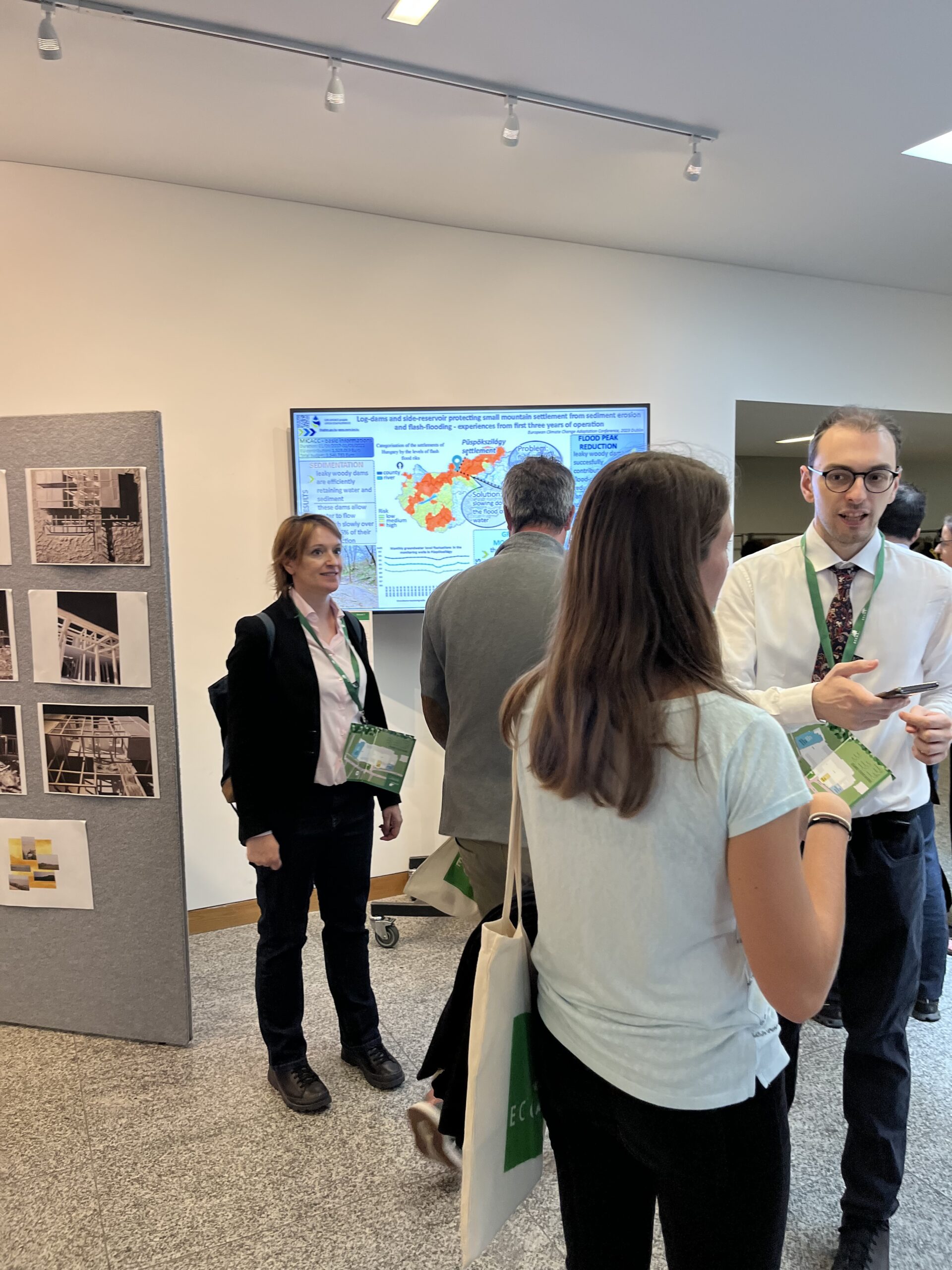
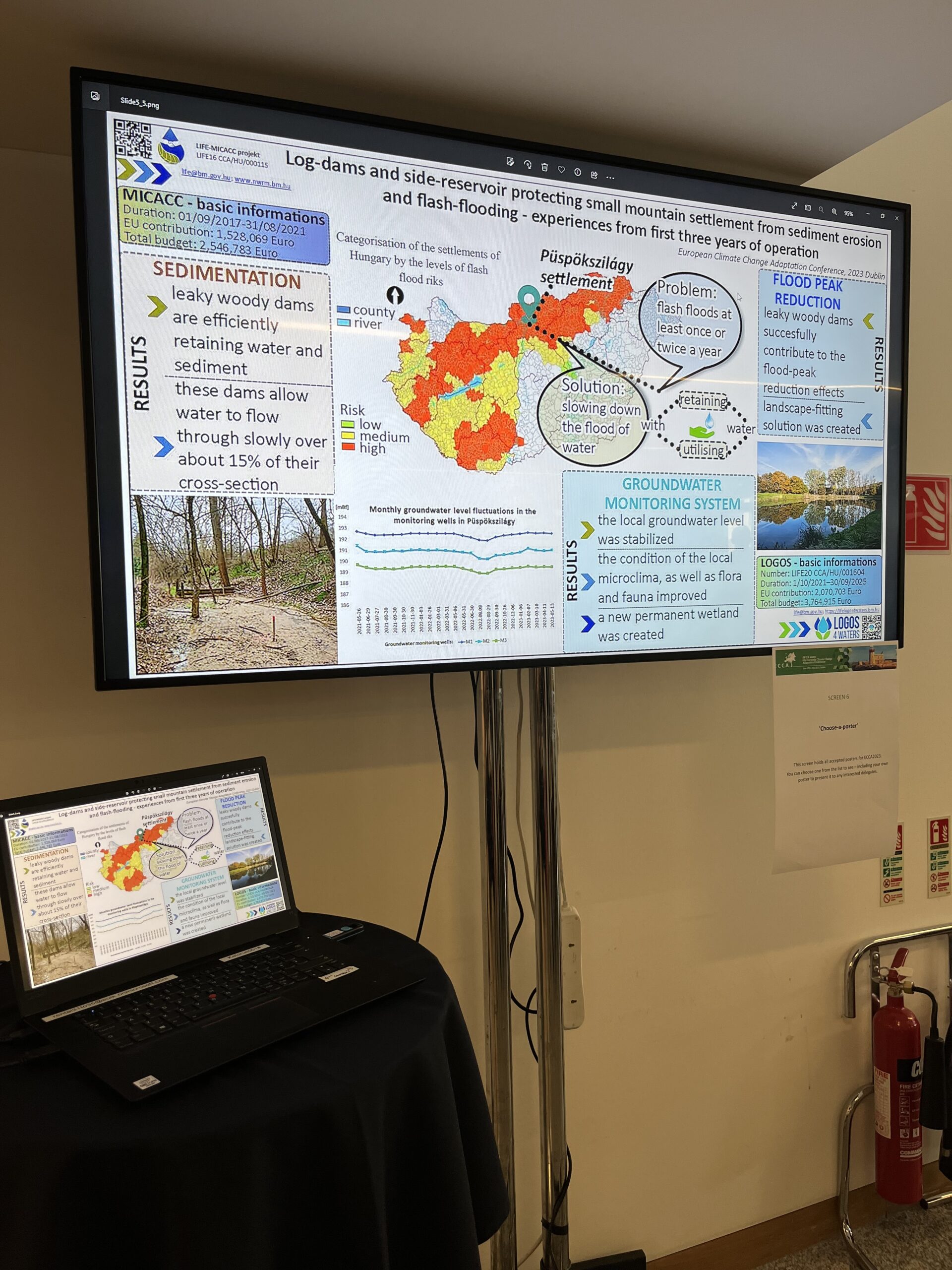
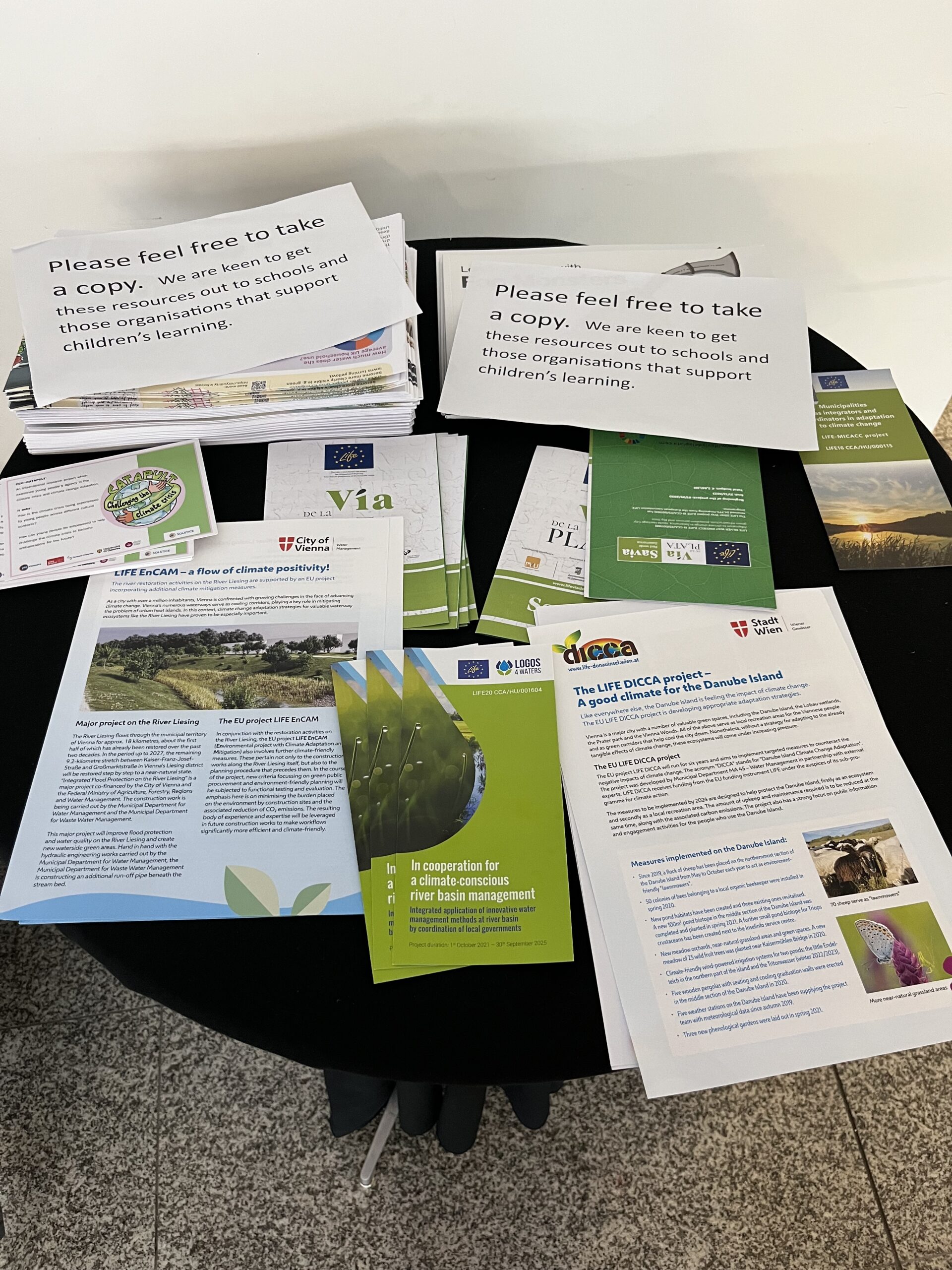
In response to the call for the poster exhibition, hundreds of posters were received from all over the world, which the organizers also published electronically on the conference website after the conference. From Hungary The LIFE LOGOS 4 WATERS project partnership was the only one from Hungary, who submit a poster entitled ‘Log-dams and side-reservoir protecting small mountain settlement from sediment erosion and flash-flooding – experiences from first three years of operation’.
On the third day of the conference, the sessions of the sections and other professional programs continued with more active involvement of the participating audience to provide the opportunity to ask individual speakers and talk to them in a small group.
On the final day, the overall message was that the whole of society, all generations, all levels of government and sectors must be involved in adaptation. The closing plenary session began with a thought-provoking discussion between Frank McGovern, Chair of JPI Climate, and Susanne Mecklenburg, Head of the European Space Agency’s (ESA) Climate Office. ESA was one of the conference sponsor and is keen to encourage the take-up Earth Observation data and satellite images for climate adaptation services. During the conversation, the ESA employee highlighted datasets in the Climate Change Initiative (CCI) and the Copernicus Climate Data Store that are freely available databases and modelling and projection capabilities. Among the closing presentations was a summary of the sessions held within the framework of the six thematic topics, in which the conference theme leaders summarized the most important messages and findings of the almost 70 session meetings of the past two days. These will be developed into cohesive guidance for advancing adaptation.
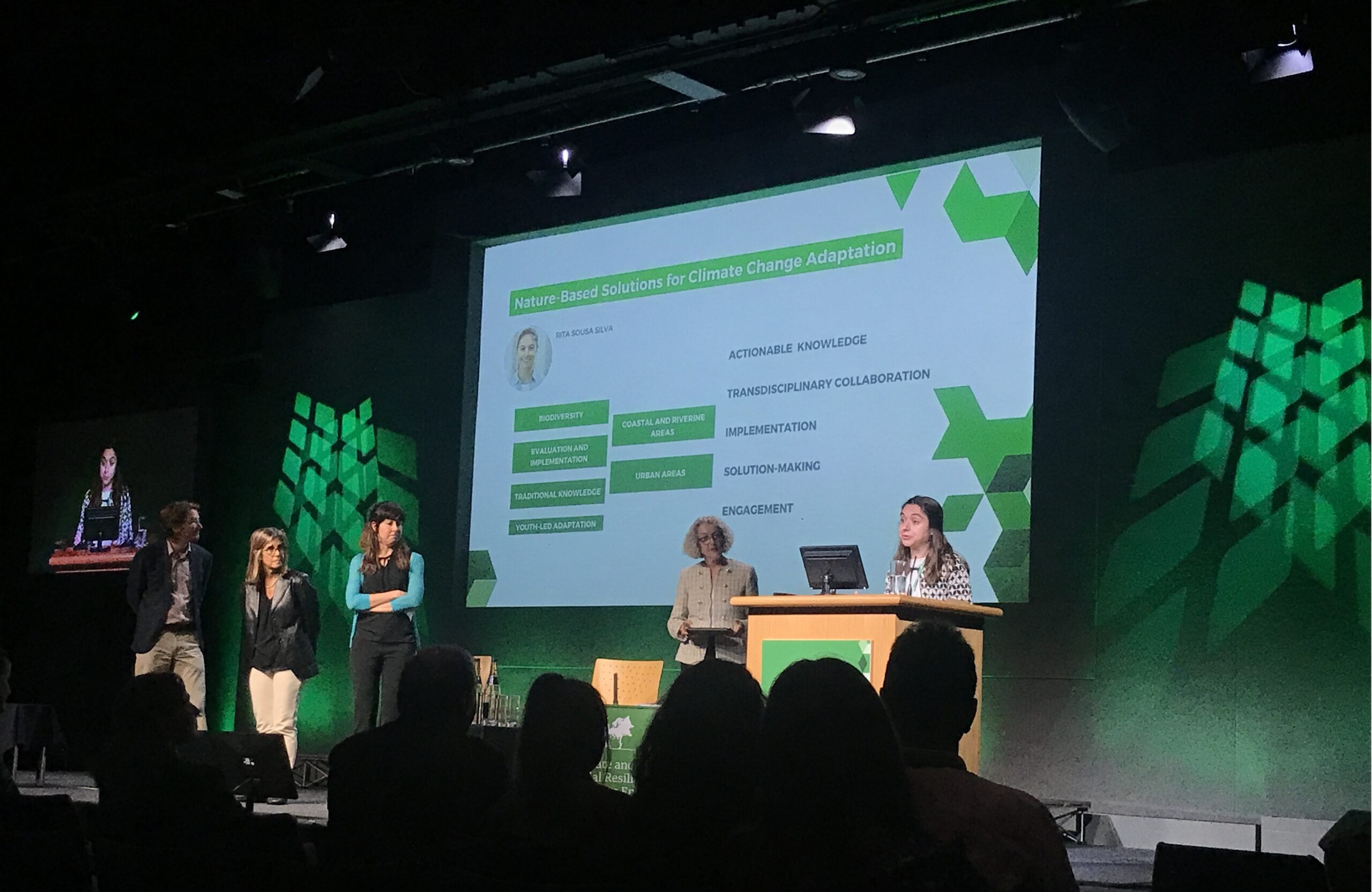
The key messages of the nature-based solutions section were: actionable knowledge; transdisciplinary collaboration; implementation; solution-making, engagement. These are also closely related to the spirit of the LIFE LOGOS 4 WATERS project, as the project implements nature-based water management solutions in broad and colorful cooperation, and is committed to promoting adaptation at the local and regional level.
The final task of the conference was to announce the next location of ECCA, which will be held in 2025. This time, the honor went to Italy and one of the host organizer of the ECCA conference, the CMCC (Euro-Mediterranean Center on Climate Change).
